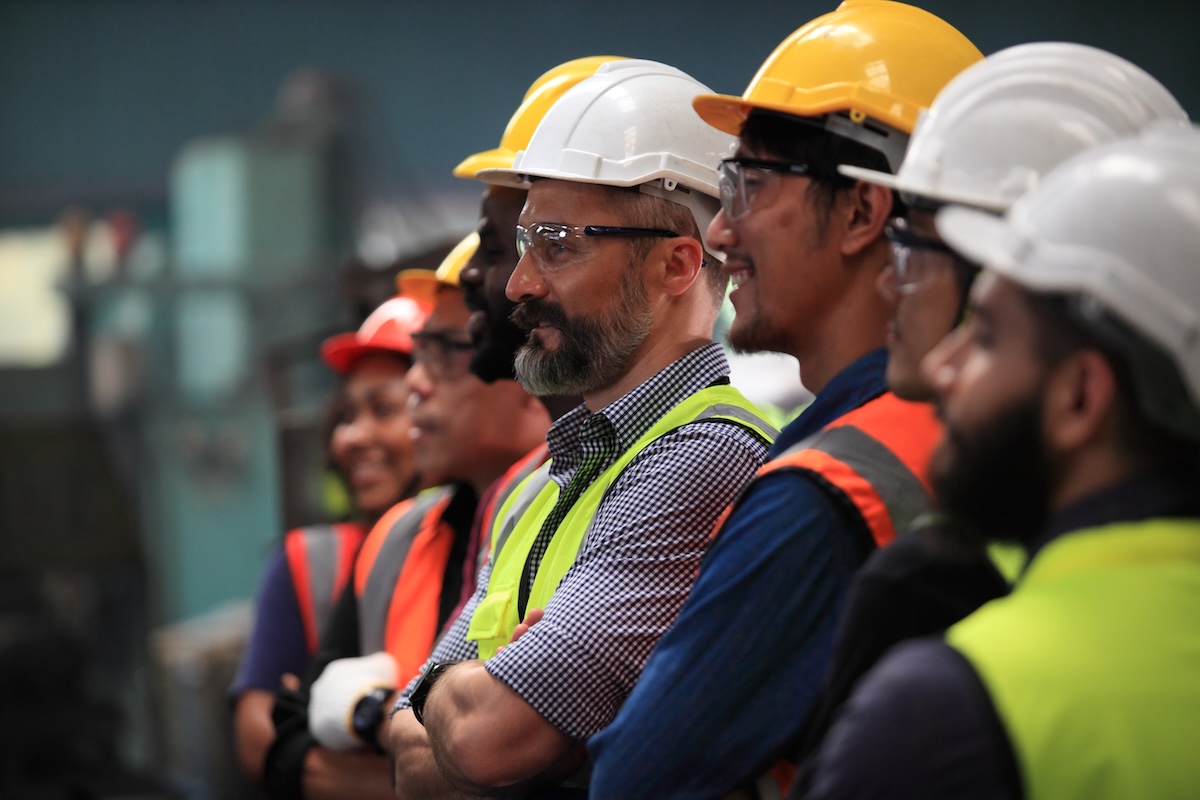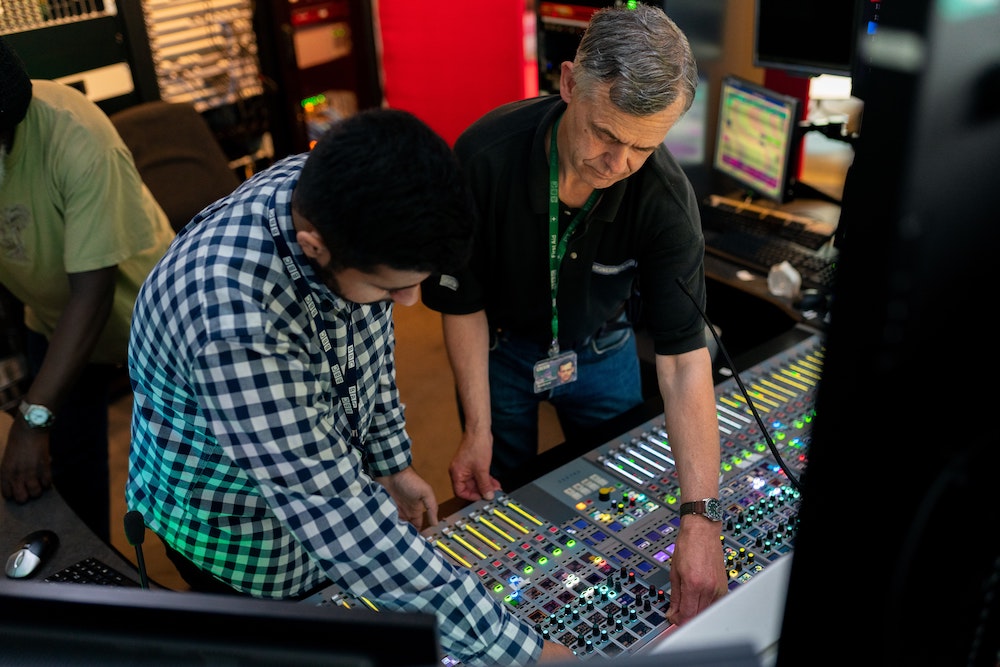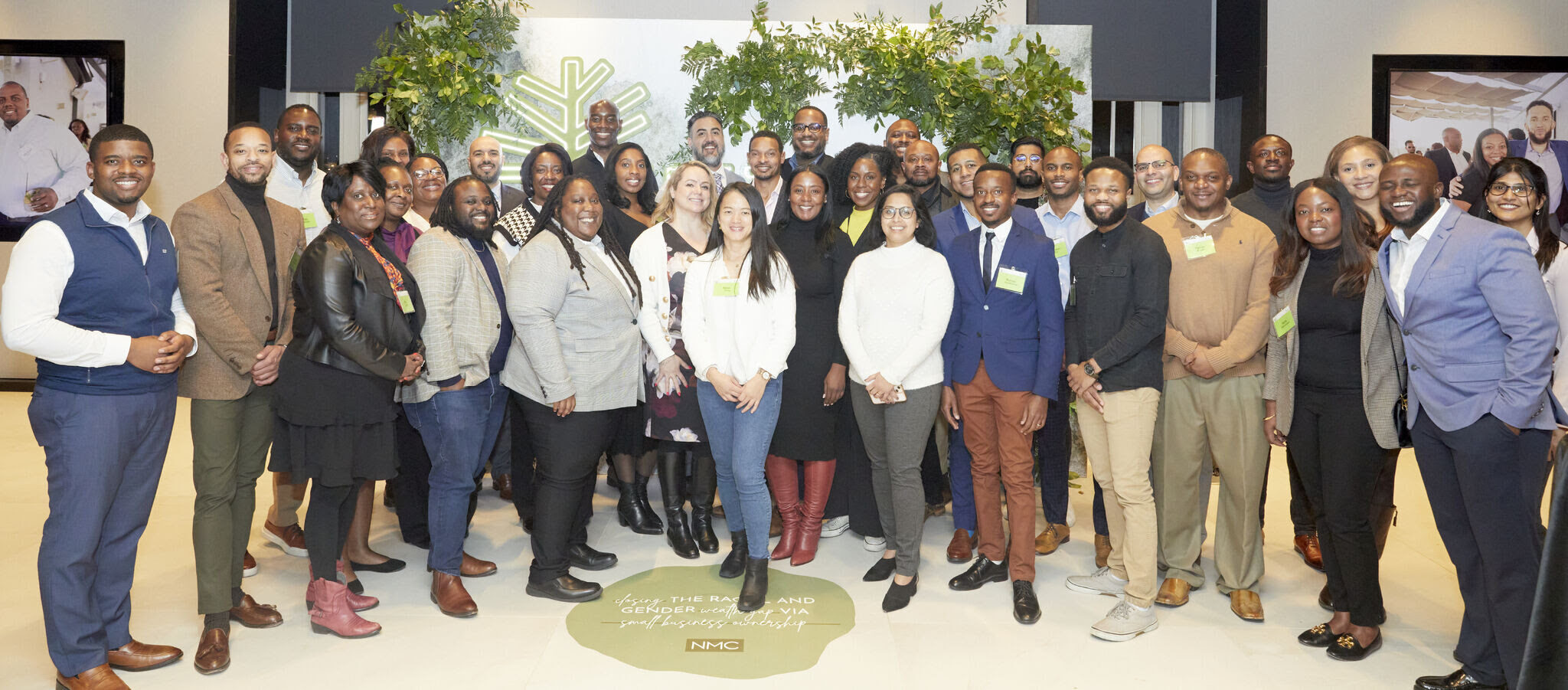Voters are getting a lot of attention in this year’s overheated political climate. But it is the power of workers that will ultimately shape whether or not communities and economies thrive.
“The Power of Us” was the theme of the two-day Horizons summit in Washington DC, which was hosted by Boston-headquartered jobs and education-focused nonprofit Jobs for the Future. The event, which took place at the Marriott Marquis a few minutes away from The White House, could not completely shelter from the political earthquake that occurred this past weekend.
Maryland Gov. Wes Moore used a fireside chat at the conference to endorse Vice President Kamala Harris for the Democratic presidential nomination.
“If we can do a better job of actually creating real opportunities, real pathways, real economic growth vehicles for people, I think we’re going to do a better job of actually having an economy that works for everybody,” Moore said.
Moore said Harris reached out quickly when the Key Bridge collapsed in Baltimore earlier this year, pledging that “the country was standing with Baltimore at that moment.”
Jobs for the Future announced a Community of Action initiative, backed by the Families and Workers Fund, to help private equity firms develop and incorporate job quality strategies in their value creation plans. The program’s partners include Black woman-owned advisory firm CapEQ and the Workforce and Organizational Research Center, or WORC, a woman-led jobs research social enterprise.
“WORC is thrilled to have the opportunity to build the evidence base on how improving job quality at private equity-owned companies impacts worker well being, human capital KPIs like turnover, and financial KPIs,” WORC’s Ellen-Frank Miller told ImpactAlpha (see Miller’s guest post, “In private equity, pairing employee ownership with good jobs can unlock wealth for all”).
Miller says WORC has been collecting this kind of data across its clients’ portfolios, including San Diego-based private equity impact investor HCAP Partners’ portfolio of nearly 20 companies (hear HCAP’s Hope Mago on ImpactAlpha’s podcast, “Finding alpha with a ‘gainful jobs’ strategy”). The data “provides valuable insights into how PE can use improved job quality to achieve impact and alpha.”
Investing in talent as a strategy for value creation “not only drives social impact but also makes good business sense,” says JFF’s Megha Bansal Rizoli.
Election-proofing
JFF also launched the 75 Million Network, which is mobilizing employers, policymakers, educators, workforce development leaders, philanthropists and impact investors to create 75 million quality jobs by 2033 for people facing systemic barriers to advancement in the workforce.
Panelists argued that a good chunk of those should be high-wage, high-growth climate jobs, particularly in historically overlooked and disinvested communities that suffer the brunt of climate change. Federal tailwinds in recent years have buoyed gains in worker power, domestic clean tech supply chains, and green jobs in such communities (see, “Politics is a proxy battle for the soul of tech, innovation and social impact”).
The urgency to maintain the momentum around worker gains and the broader inclusive prosperity agenda was palpable. The outcome of the upcoming US elections could decide the fate of the green, sustainable and inclusive economy at the heart of the historic Inflation Reduction Act, the largest-ever federal commitment to action on climate change. Republicans have vowed to repeal the bill.
“On one hand, you have, literally, a trillion dollars that we can leverage to invest in greening low-income communities [and do] all the things that we’ve been talking about: build wealth, create jobs, create health, transform these communities forever,” said Donnel Baird of Brooklyn-based BlocPower that delivers green retrofits in aging buildings, said during what the conference called a “candid conversation.”
“We may lose all of it in like five months,” Baird said. “The question for all of us here is, what do we do with this opportunity? Even if it’s a good $300 billion, how can we make sure we get some of that money to our communities between now and November? It’s hard for me to focus on anything else.”
Reentry services
Upskilling formerly-incarcerated individuals is emerging as a compelling workforce development strategy in the climate and broader economy. Each year, more than 500,000 people return from state and federal prisons, and another nine million return cycle through local jails.
During a panel discussion, Le’Ann Duran of New York-based philanthropic investment firm Blue Meridian Partners, argued for more inclusive hiring practices to bridge the gap between unemployed people with a record and the millions of jobs that are left unfilled yearly. Racial disparities in hiring and other exclusionary hiring practices continues to widen the gap.
“For fair chance hiring to succeed, we need a vision for solutions that scale and center racial equity and get underneath employer hiring practices,” says Duran.
At Horizons, Black-led social enterprise Untapped Solutions (formerly ConConnect), which provides reentry services like job interview preparation and training to formerly-incarcerated people, secured the $10,000 prize during a JFF startup pitch competition. Untapped is backed by the De-Carceration Fund, a Philadelphia-based fund that invests in “justice tech” entrepreneurs.
In New York, BlocPower’s green workforce development program Civilian Climate Corps has provided paid training to over 3,000 formerly-incarcerated and other marginalized individuals for heat pump and EV charging installations. A quarter of them are women and the majority are Black and Brown individuals.
Climate workforce
Large private equity investors and national and community-focused organizations are rallying around building an inclusive green jobs workforce. Ares Charitable Foundation, the philanthropic arm of Los Angeles-headquartered private equity investor Ares Management, last year formed a partnership with JFF to train and place 25,000 individuals in green jobs over the next five years.
“We’re not only looking to help support individuals and communities as the green economy continues to grow, but also to learn from what we’re doing and to share those lessons learned and best practices along the way,” said Ares’ Michelle Armstrong.
The partnership with JFF is part of the Ares Foundation’s Climate Resilient Employees for a Sustainable Tomorrow, or CREST, a five-year and $25 million initiative it launched on Earth Day in 2022 to reskill women, people of color and others with low-socioeconomic status for green jobs (for background, see, “A $25 million plan to upskill and diversify the climate workforce”).
“We recognize that at its heart, the energy transition is an economic transition,” Armstrong said. “And so we like to think that we were one of the first to identify and to nurture the intrinsic link that exists between workforce readiness and climate change.”
AmeriCorps, the federal agency for national service and volunteerism launched by former President Bill Clinton in 1993, last year joined climate workforce readiness efforts with the launch of the American Climate Corps program.
The program, which aims to build a diverse cohort of 20,000 members in its first year, “is going to allow young people to turn climate anxiety into climate action,” said AmeriCorps’ Michael Smith. “We’re going to provide the training, credentialing [and] certification, so that we can actually help you stay and get into the green jobs economy of the future.”
Black women-led Black Girl Environmentalist is working to empower Black girls, women and non-binary people in the climate action movement. The national organization works with nonprofit and corporate partners in 10 cities to launch “Black girl-focused” green jobs upskilling programs.












